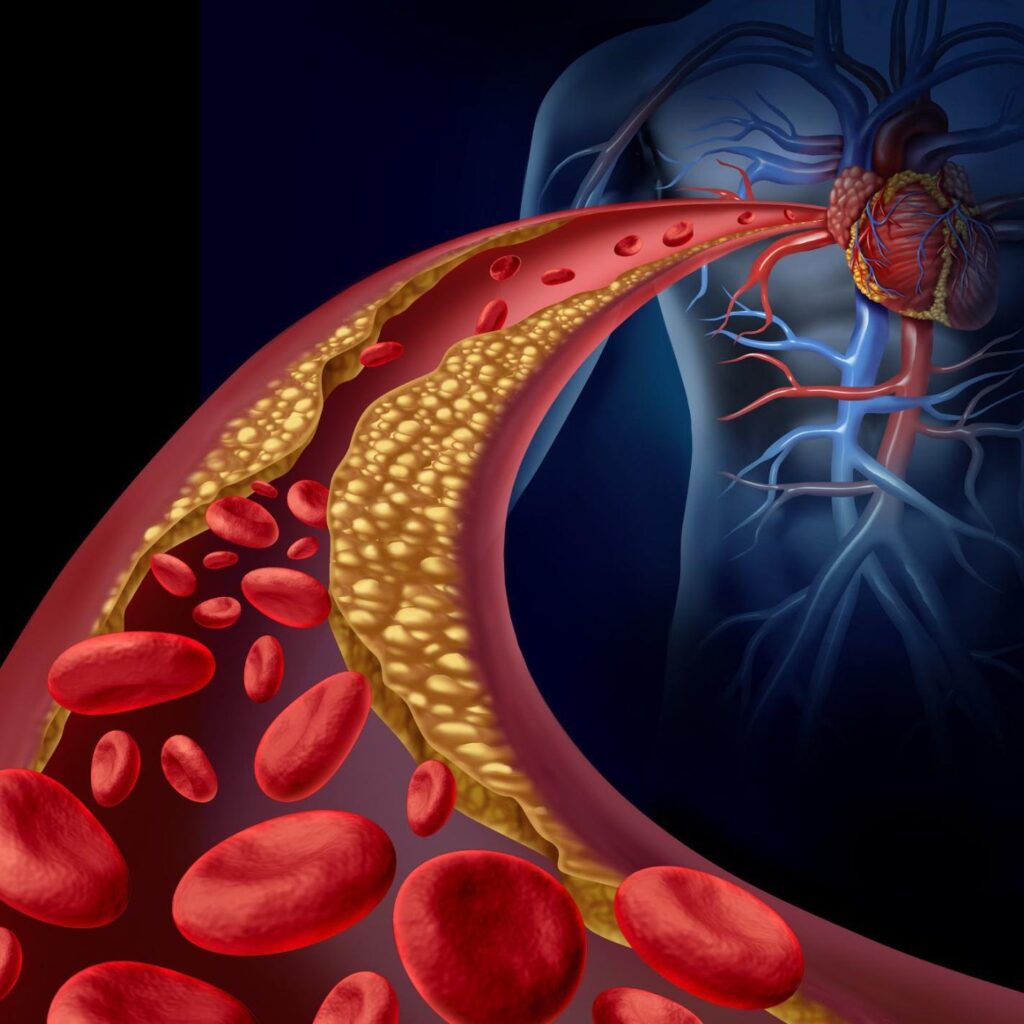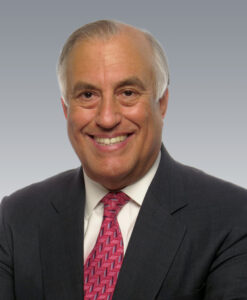High cholesterol levels are, unfortunately, a common problem, but first, let’s discuss what cholesterol is? Cholesterol is a substance produced by your liver naturally, and it’s a kind of lipid and is waxy and fat-like. Your body needs some cholesterol to function as it’s used to form vitamin D, some hormones, and to create cell membranes. Because cholesterol doesn’t dissolve in water, it cannot be transported through your blood on its own, so the liver produces lipoproteins to help transport cholesterol.
 Lipoproteins are made from protein and fat, and they transport cholesterol and another type of lipid called triglycerides through your blood. There are two types of lipoprotein, which are low-density lipoprotein or LDL, and high-density lipoprotein, which is called HDL. If you have high cholesterol levels, it means your blood has too much LDL cholesterol. Without treatment and management, high cholesterol levels can cause serious health problems, including heart attacks or stroke. One of the issues with high cholesterol levels is that it often causes no symptoms, which is why your healthcare provider needs to check your cholesterol levels regularly.
Lipoproteins are made from protein and fat, and they transport cholesterol and another type of lipid called triglycerides through your blood. There are two types of lipoprotein, which are low-density lipoprotein or LDL, and high-density lipoprotein, which is called HDL. If you have high cholesterol levels, it means your blood has too much LDL cholesterol. Without treatment and management, high cholesterol levels can cause serious health problems, including heart attacks or stroke. One of the issues with high cholesterol levels is that it often causes no symptoms, which is why your healthcare provider needs to check your cholesterol levels regularly.
What Is LDL-Cholesterol?
LDL cholesterol or low-density lipoprotein is frequently referred to as being bad cholesterol, carrying cholesterol to your arteries. When you have excessive LDL cholesterol levels, it can collect on the walls of your arteries, a condition known as cholesterol plaque. Cholesterol plaque can narrow arteries, reducing blood flow, and increases the risk of blood clots. If a blood clot breaks away, it can block a vital artery in your heart or brain, potentially causing a heart attack or stroke. It’s estimated more than a third of adults in the US have high levels of LDL-cholesterol.
What Is HDL Cholesterol?
HDL cholesterol or high-density lipoprotein is usually referred to as being the good cholesterol. Its function is to help return bad or LDL-cholesterol to your liver where it is removed from your body. This function helps prevent plaque from building up in your arteries. You need healthy levels of HDL cholesterol to help reduce your risk of blood clots and, consequently, your risk of heart disease and stroke.
What Are Triglycerides?
Triglycerides are different from cholesterol, but they are another type of lipid. Your body needs triglycerides as an energy source, and when you eat more food than your body can consume right away, these additional calories are converted into triglycerides. Triglycerides are stored in fat cells, and the body uses lipoproteins to carry triglycerides through your blood. If you regularly overeat so more calories need to be stored by your body, it can raise your triglyceride levels. When your triglyceride levels are too high, it can increase your risk of heart disease and stroke.
Checking Your Cholesterol Levels
People aged 20 or older should get their cholesterol levels checked every 4 to 6 years, but some people may need more frequent checks if they have particular risk factors for cardiovascular disease or if they have a history of having high cholesterol levels.
These levels are checked using a simple blood test, where a lipid panel measures your levels of LDL cholesterol, HDL cholesterol, and triglyceride levels. The lipid panel also provides a total cholesterol level, combining LDL and HDL cholesterol levels. If your overall cholesterol level or your LDL cholesterol levels are too high, it means you have high cholesterol. The readings are especially concerning if you have high levels of LDL and low levels of HDL.
What Can Cause High Cholesterol?
When you eat too many foods that are high in saturated fats or trans fats, it can increase your risk of developing high cholesterol. Other risk factors include being physically inactive and smoking. Your genes play a part too, so if you have a family history of high cholesterol, for example, if your parents or siblings have high cholesterol levels, your risk is higher. Some people have a condition called familial hypercholesterolemia, a rare genetic disorder where the body cannot remove LDL cholesterol. Other health conditions, especially hyperthyroidism and diabetes, can increase the risk of developing high cholesterol and its associated complications.
Another contributory factor to high cholesterol levels can include metabolic syndrome. This is where people have three or more of the following conditions, which are: a larger waist measurement, low HDL levels, high blood pressure, elevated fasting blood sugar, or high triglyceride levels. People with metabolic syndrome will often have an apple or pear-shaped body.
Discovering If Your High Cholesterol Is Due to Genetics or Lifestyle
A cardiologist can carry out specific tests to determine if your high cholesterol is due to genetics or is lifestyle-related. These tests include an expanded lipid analysis that not only measures lipids but assesses the particle size and particle number. An NMR lipoprotein test is a nuclear magnetic resonance test, providing an in-depth way to measure how much LDL is in your body and to assess your risk of heart disease. Another test is a carotid intima-media thickness test, which is an ultrasound measuring the carotid arteries in your neck. It’s useful in detecting early signs of heart disease before these arteries become blocked. A coronary calcium CT scan is a particular type of x-ray providing pictures of your heart and which can show how much plaque is in your arteries.
High cholesterol levels can usually be successfully treated with Statins or with other medicines, but often lifestyle changes can make a huge difference in lowering cholesterol levels.
When you follow a heart-healthy diet, it can help reduce levels of LDL cholesterol while increasing levels of HDL or good cholesterol. Get into the habit of reading food labels and avoiding foods that are high in saturated fat or contain trans fats. Foods you should be enjoying include fatty fish like salmon or trout or sardines as well as nuts and seeds and legumes, and oats and oat bran.
Healthy fats include avocado oil and olive oil. Avoid hydrogenated or partially hydrogenated vegetable oils. Aim to eat plenty of fruits and vegetables, and switch to low-fat milk or fat-free milk. Something as simple as mixing ground flax seeds and Chia seeds with your morning oatmeal and topping it with fresh blueberries can help lower your cholesterol levels, and it’s a tasty start to the day.
The best cardiologist in NYC can give you lots of advice on how to eat more healthily, or they may even refer you to a dietician to help devise a diet you find easy to follow.

Dr. Steven Reisman is an internationally recognized cardiologist and heart specialist. He is a member of the American College of Cardiology, American Heart Association, and a founding member of the American Society of Nuclear Cardiology.
Dr. Reisman has presented original research findings for the early detection of "high risk" heart disease and severe coronary artery disease at the annual meetings of both the American College of Cardiology and the American Heart Association. Dr. Reisman was part of a group of doctors with the Food and Drug Administration who evaluated the dipyridamole thallium testing technique before the FDA approved it.
Dr. Steven Reisman's academic appointments include Assistant Professor of Medicine at the University of California and Assistant Professor at SUNY. Hospital appointments include the Director of Nuclear Cardiology at the Long Island College Hospital.



